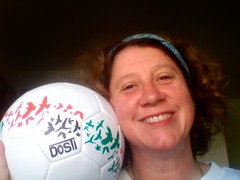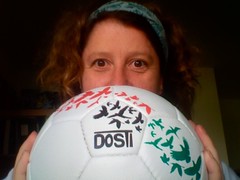Virtual volunteering in all its forms – long-term service, online mentoring, online microvolunteering, crowdsourcing, etc. – has been around for more than 30 years, as long as the Internet has been around, and there are several thousand organizations that have been engaging with online volunteers since at least the late 1990s. While directing the Virtual Volunteering Project, I gave up trying to track every organization involving online volunteers in 1999, because there were just too many!
Virtual volunteering – people donating their time and expertise via a computer or smart phone to nonprofit causes and programs – has been talked about in major media, including the New York Times, the Wall Street Journal, CNN, the Associated Press, Deutche Welle, the BBC, even the Daily Show, for more than 15 years (I know because I’ve been quoted in a lot of those stories!).
But virtual volunteering has remained thought of as a fringe movement, or something brand new, by many, despite it being so well-established. Virtual volunteering still isn’t included in national volunteerism reports by any national or international body, such as the Points of Light Foundation, the Corporation for National Service or the Pew Research Center, Volunteering England, or Volunteer Australia.
Perhaps the last holdouts regarding virtual volunteering will finally give in and accept it as mainstream, now that an online mentoring program representative has been nominated as a CNN Hero.
I was introduced to Infinite Family in 2010, and was immediately impressed with its commitment to the fundamentals of a successful online mentoring program in its administration of the program, including the importance it places on site manager-involvement in its program. This is an online mentoring program absolutely committed to quality, to the children its been set up to support, and its online volunteer screening process is no cake walk – as it should be, as the children it supports deserve nothing less! Mentoring cannot be done whenever you might have some time, in between flights at an airport: it takes real time and real commitment, even when its online. Infinite Family gets that.
While all of the CNN Hero projects are worthy of attention and support, I am throwing my support to Infinite Family as the top CNN Hero for 2011.
If you want to volunteer online, here is a long list of where to find virtual volunteering opportunities, including long-term service, online mentoring, online microvolunteering, and crowdsourcing.
Also see the archived Virtual Volunteering Project web site, and resources on my web site regarding volunteer engagement and support.




 Kudos to the
Kudos to the